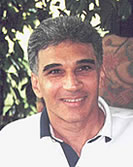February 2006 Article
Get Tom Veneziano's book The Truth about Winning! at Amazon.com
Tennis Server
|

 |
So, you've taken my advice and you're out practicing like a true Tennis Warrior. Every thing is moving along according to your practice schedule. You're making some mistakes, but over all it's a winning Warrior performance. You're even thinking, "Tom must be right, this repetition practice is the path to tennis immortality." Then, wham!!! Out of nowhere you begin practicing like a seasoned beginner. You're not sure what's going on, but your muscles are not responding correctly, you're timing seems out of whack, and the tennis ball begins looking like a ping pong ball. Your shots are flying everywhere! All you can think of is... Whoa!!! Then you begin thinking about how tired you feel. "Aha" you think, "that must be it. I'm tired. That's what's causing all of these problems. Time to stop practicing before I acquire any bad habits. This is all Tom's fault. He told me to practice, practice, practice, practice, practice with massive repetition. But, he did not tell me you quickly become so tired your game falls apart." By the way this is a typical situation. Except for blaming me... I hope! :) When players become tired in their practice they play poorly and think it's time to head for the whirlpool. They think, "what's the point, I'm tired, I cannot play or practice effectively." What? You're tired and cannot play or practice effectively? Who cares! Get back out there and mentally work yourself through it. Why? Because this is what it's all about. Physically and mentally working yourself through these situations is what separates you from the players who quit. Mentally tough players forge forward while the mentally timid boomerang backward. But you still say, "if I'm tired I cannot improve. What's the point?" The point is, this is the time you can improve the most! That's right, bringing yourself to the point of being tired and then working through it physically and mentally can help you improve at a faster rate. It's a technique I use on purpose when teaching my students. I bring them to the point where they are tired. Balls begin to fly every where and they become a bit discouraged. At that point I challenge them to forget where the balls are going, to put themselves on automatic and keep swinging. There are two concepts at work here. The first is you are physically and mentally extending yourself beyond the norm. As a result you become physically and mentally stronger. If you can practice when the situation is at its toughest, how much easier will it be to practice and play when you are well rested? You push yourself to the max so that anything less becomes easy. If you can do the greater, you can do the lesser. Push yourself beyond the norm and what once felt difficult becomes easy. I use this principle constantly when teaching... it works! You must not quit practicing at the first sign of tiredness. Don't give yourself excuses to stop even if your playing is terrible. Keep concentrating and moving on. Second, if you quit in practice because your tired and playing poorly what are you going to do in a match? I can hear you now talking to your opponent. "I'm a little tired and it's causing me to not play at the top of my game. Do you think we can quit and resume tomorrow when I've had a good nights sleep?" Do you think your opponent will quip, "oh sure that's fine. Is that enough time? How about taking two days rest. This is all my fault. I'm so sorry I got you all sweaty and tired." Again, you must not quit practicing at the first sign of tiredness or you will train yourself to make tiredness an excuse in your matches. You must effectively train your mind to keep fighting, regardless of the circumstances. And guess what? We're back to YOU again. There are built in excuses everywhere that YOU can use to justify why YOU should take the path of least resistance. I hope with this article I have effectively eliminated one of your excuses. Or are you too tired to get it!
This column is copyrighted by Tom Veneziano, all rights
reserved.
Tom is a tennis pro teaching
at the Piney Point Racquet Club in Houston, Texas. Tom
has taught thousands of players to think like a pro with
his Tennis Warrior System.
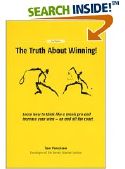
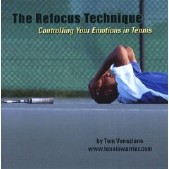
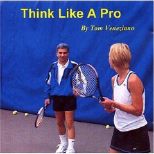
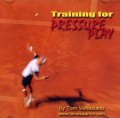
Audio CDs by Tom Veneziano:
|



October 2022 Tennis Anyone: Patterns in Doubles by John Mills. September 2022 Tennis Anyone: Short Court by John Mills. |
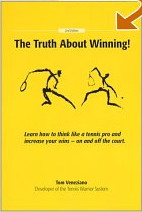
 You will join 13,000 other subscribers in receiving news of updates to the Tennis Server along with monthly tennis tips from tennis pro Tom Veneziano.
You will join 13,000 other subscribers in receiving news of updates to the Tennis Server along with monthly tennis tips from tennis pro Tom Veneziano. 